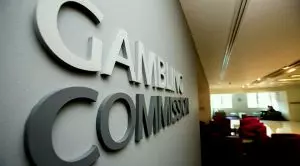 The major British regulatory body has recently revealed that the online gambling activity in the UK is falling from the high it reached during the coronavirus pandemic. Still, according to the latest data provided by the UK Gambling Commission (UKGC), this happens partly, as local customers are redirecting their betting to retail betting shops that have been opened lately.
The major British regulatory body has recently revealed that the online gambling activity in the UK is falling from the high it reached during the coronavirus pandemic. Still, according to the latest data provided by the UK Gambling Commission (UKGC), this happens partly, as local customers are redirecting their betting to retail betting shops that have been opened lately.
A few days ago, the major gambling watchdog in the country revealed that all online gambling verticals are reporting a decline in their gross gambling yield (GGY) from June to July. Poker, esports and virtual sports were the ones to suffer the hardest blow, with live sports events got back after the lockdown.
The data that has been most recently published by the UKGC reflects March, April, May, June and July and covers retail and online gambling. It includes the latest data provided by the licensed betting operators that are offering their services on the country’s high streets. As mentioned above, the watchdog reported a slight decline on a monthly basis in the amount spent by customers on online gambling, including online slots games available. According to the latest reports, the amount spent by British consumers remained higher than the levels reached before the coronavirus pandemic lockdown fuelled by the customers’ demand for sports betting on popular events.
But with the high-street betting shops now resuming operations across the country, the UK Gambling Commission said it will continue to monitor customers’ behaviour so it better understands levels of engagement with retail gambling products, considering the fact that more people get back to their regular routine in city and town centres.
The UKGC Continues to Track Coronavirus-Related Risks Associated with Gambling Companies
 The new online data provided by the gambling watchdog reveals that the number of online slots sessions, which last longer than an hour, were reduced by 2% in the month to July. Furthermore, the number of customer interactions undertaken by gambling companies increased by 2% in the period between June and July.
The new online data provided by the gambling watchdog reveals that the number of online slots sessions, which last longer than an hour, were reduced by 2% in the month to July. Furthermore, the number of customer interactions undertaken by gambling companies increased by 2% in the period between June and July.
The UK Gambling Commission explained that gambling behaviours of local customers continue to evolve as the country continues to ease the full lockdown and social distancing measures into the autumn months, but they still justify the regulator’s updated guidance to gambling companies operating in the UK.
The latest data unveiled by the major gambling watchdog included guidance to online operators in May, with the UKGC setting out the necessity for improved affordability checks, restrictions on some bonus offers of the operators, as well as prevention of reverse withdrawals. Such measures were unveiled for land-based gambling premises in June, at the time when the Government gave retail gambling companies the green light to resume operations.
The UK gambling watchdog says it continues to track coronavirus-related risk by collecting and publishing the data gathered from operators, assessing the impact that increased guidance has on companies and supporting the gambling sector as brick-and-mortar gambling venues begin to reopen. The UKGC also said that it would continue to track risks associated with Covid-19 in cases where evidence identifies additional risks that customers encounter, taking further action to protect players.
Retail Gambling Returning to Normality after Lengthy Premise Closures
 The licensed land-based gambling operators across the UK were forced to shut their premises on March 23rd as part of the Government’s measures aimed at preventing the further spread of the coronavirus infection in the country. The authorities allowed some of them to reopen from June 15th, so the UKGC presented data collected from the largest gambling companies for the months of March, June and July.
The licensed land-based gambling operators across the UK were forced to shut their premises on March 23rd as part of the Government’s measures aimed at preventing the further spread of the coronavirus infection in the country. The authorities allowed some of them to reopen from June 15th, so the UKGC presented data collected from the largest gambling companies for the months of March, June and July.
However, the gambling watchdog explained that analysis is focused on the share of spend across the retail gambling products available instead of absolute values because the latter are not directly comparable between the above mentioned periods. The regulatory body shared that the initial reopening of brick-and-mortar gambling premises of licensed betting operators has led to small changes in the consumers’ engagement with the products available. The product mix has shifted more towards machines, but the gross gambling yield generated by over-the-counter products suffered a 10% decline in the period from March to June. The machines GGY, on the other hand, rose from 48% to 57% in the same period.
The gambling watchdog revealed that so-called self-service betting terminals (SSBTs) accounted for 1% of all wagers placed since the easing of coronavirus lockdown. Apart from that, the indicators for session length, customers’ spending per session and the proportion of sessions that last for more than an hour have considerably risen since the reopening of retail gambling operations. According to the UKGC, this shows potential for some increase in the intensity of play.
Online Gambling Participation Rates Shrink after Easing of Covid-19 Lockdown Measures
 According to the latest data showing how the easing of the coronavirus lockdown measures has affected retail and online gambling behaviour of local customers, the gross gambling yield of online gambling between June and July suffered a slight 4% decline, despite the fact that the figure in June was boosted by the return of betting on real sports events.
According to the latest data showing how the easing of the coronavirus lockdown measures has affected retail and online gambling behaviour of local customers, the gross gambling yield of online gambling between June and July suffered a slight 4% decline, despite the fact that the figure in June was boosted by the return of betting on real sports events.
The UKGC said that the process could incorporate several factors. For example, as the entertainment and leisure sector in the UK slowly emerges from the restrictions imposed during the Covid-19 lockdown, this could have resulted in replacement discretionary expenditures migrating to other forms of entertainment. On the other hand, as the number of operational high-street betting shops across the country (Scotland excluded), this may have led to some transference of money spent on betting to the land-based sector.
As far as online slots are concerned, the reported figures have not seen any drastic changes since June, as their GGY fell by 2% to £162 million between June and July. Still, a slight increase of 1% in the number of active players was registered in the same period. Furthermore, the average loss per player also saw a slight decline, although the average loss figure for online slots is considerably higher in comparison to the one associated with any other online gambling product.
As the UKGC shared, the number of online gambling products played by individual consumers remained pretty much unchanged in the period between June and July, although British players are not more engaged than they used to be in March 2019. On the other hand, the figure showing the local consumers’ engagement in more than one online gambling activity declined from 41% in April 2020 to 34% in July 2020.
As mentioned above, the number of online slots gaming sessions that lasted longer than an hour fell by 2% in the month to July. Still, the average session length remained unchanged. The UK Gambling Commission further revealed that approximately 8% of all sessions lasted for more than an hour.
- Author


